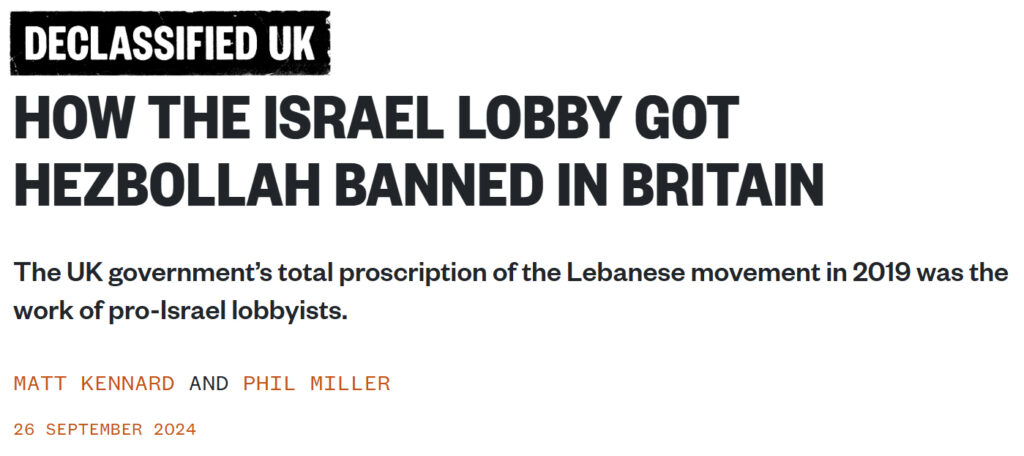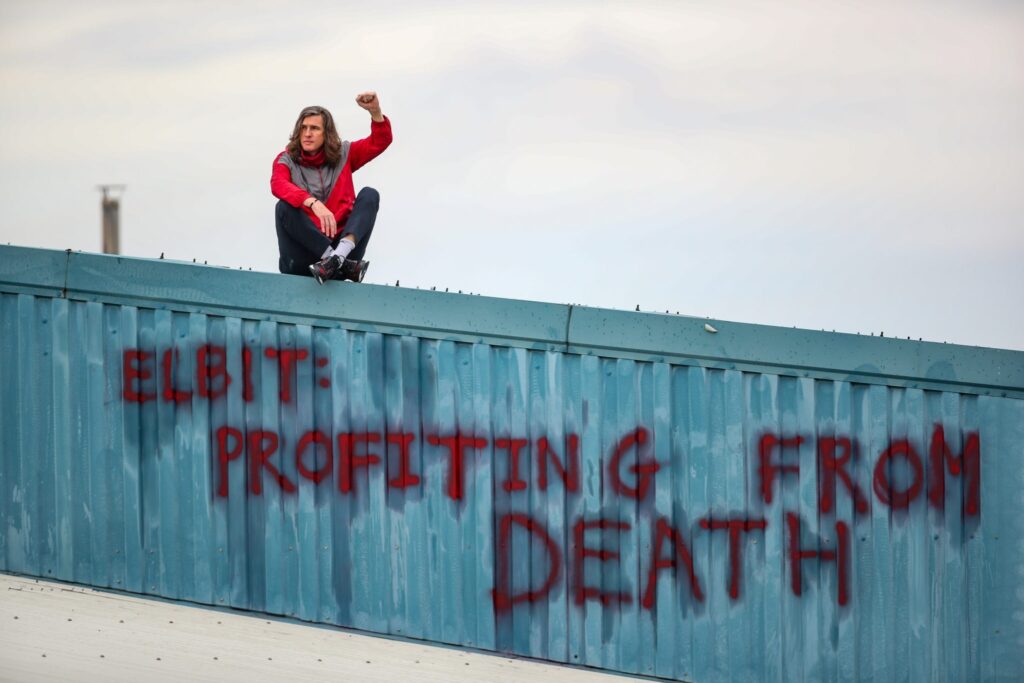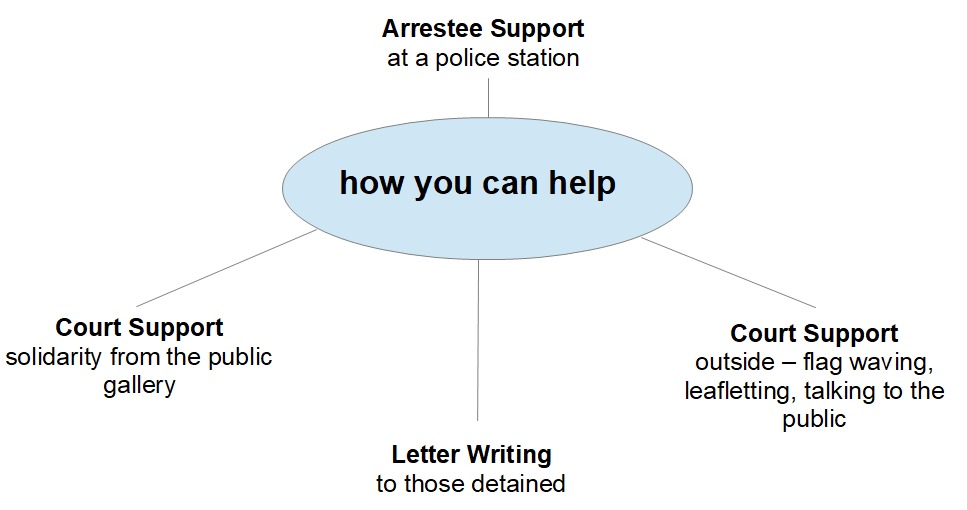The UK Home Secretary has announced plans to proscribe the direct-action group Palestine Action as a terrorist organisation, triggering condemnation from civil rights lawyers, campaigners, MPs, and international observers. If passed by Parliament, the order would criminalise support, membership, and even expressions of solidarity with the group — placing it in the same legal category as ISIS and far-right terror group National Action.
In response, former Labour leader Jeremy Corbyn MP issued a blistering statement condemning the move as “absurd and authoritarian,” calling it an attempt by the government to hide its own complicity in war crimes.
Jeremy Corbyn: “A Disgraceful Attempt to Hide the Real Violence”
Speaking as founder of the Peace and Justice Project, Corbyn said:
“The government’s proposal to proscribe Palestine Action as a terrorist organisation is as absurd as it is authoritarian.
It represents a draconian assault on the democratic right to protest and is a disgraceful attempt to hide the real meaning of violence: the mass murder of Palestinians.
The UK government is complicit in genocide, and we see this latest move for what it is: an act of desperation from a government trying to shield itself from accountability.
We will keep campaigning for an end to military cooperation with Israel, and we will not rest until we have brought about the only path to peace: freedom and justice for the Palestinian people.”
— Jeremy Corbyn, MP for Islington North

What is Palestine Action?
Formed in 2020, Palestine Action is a network of activists who use direct action to expose and disrupt UK complicity in Israeli war crimes, particularly through the arms trade. The group’s primary target has been Elbit Systems, Israel’s largest weapons manufacturer, which operates multiple facilities in the UK.
Through tactics such as occupations, factory shutdowns, and site blockades, Palestine Action has forced the closure of two Elbit sites and brought unprecedented scrutiny to UK-Israel arms deals. The group has never advocated or engaged in violence against individuals. Instead, it targets infrastructure and property linked to the machinery of war.
Activists point to international humanitarian law and the International Criminal Court Act 2003 to justify their actions, arguing that Elbit’s supply of drone technology, munitions, and surveillance equipment contributes directly to crimes committed against Palestinians in Gaza and the West Bank.

A Lobby-Driven Campaign
The push to proscribe Palestine Action appears to be heavily influenced by lobbying efforts from pro-Israel groups. Just days before government sources confirmed the Home Secretary’s intent, ‘We Believe in Israel’ released a report calling for Palestine Action to be banned. Simultaneously, the Campaign Against Antisemitism (CAA) sent a letter to the Home Secretary demanding proscription.
Critics say this is part of a broader pattern in which the UK government aligns with the Israeli state and its advocates to suppress dissent. If successful, the proscription order would make it a criminal offence to express support for, donate to, or be associated with Palestine Action, with penalties of up to 14 years in prison.
“This isn’t about terrorism — it’s about shielding arms companies and the government from public scrutiny,” said Huda Ammori, co-founder of Palestine Action.
“We’re being punished for exposing war crimes.”
Legal Resistance: Gareth Peirce Leads the Fight
In response, Palestine Action has instructed Gareth Peirce of Birnberg Peirce Solicitors to lead the legal battle to stop proscription. Peirce, known for defending the Guildford Four, Birmingham Six, and other victims of state injustice, is joined by Kellys Solicitors in preparing both a legal challenge to the proscription order and a possible judicial review to de-proscribe the group if necessary.
A fundraising campaign has been launched to raise £100,000, with the group warning that if proscription succeeds, fundraising itself may become a criminal act — making this period of resistance all the more urgent.
Public Support Growing
The government’s move has sparked a groundswell of public solidarity with Palestine Action from across civil society.
“If Palestine Action is proscribed for resisting war crimes, then none of us are safe,” said MP Zarah Sultana.
“This is an attack on all who stand up to state violence and corporate power.”
A joint statement from 14 pro-Palestine organisations — including the Palestine Solidarity Campaign, Friends of Al-Aqsa, and Jewish Network for Palestine — denounced the move as “criminalising conscience” and pledged to resist the repression.
More than 300 artists, writers and academics, including Ken Loach, Lowkey, and Ahdaf Soueif, have signed an open letter condemning the proscription attempt. The letter reads:
“To criminalise those who act to prevent war crimes is to turn justice on its head. Palestine Action is being targeted not because it causes harm, but because it has exposed the harm caused by others.”
Human rights lawyer Dr. Ghada Karmi added:
“This isn’t terrorism — it’s direct action against genocide. Proscribing Palestine Action is the UK government’s admission that it will protect Israeli war crimes at any cost.”
In cities from London to Glasgow, solidarity rallies, teach-ins, and emergency fundraisers have been launched. A petition to halt the proscription reached over 100,000 signatures in just three days, triggering national debate.
Several trade unions, including branches of Unite, NEU, and PCS, have passed emergency motions in support of the group and warned that the government’s actions threaten the right to organise and protest across the UK.
A Turning Point for British Democracy
Legal experts warn that using anti-terror laws to criminalise direct action could have profound consequences for protest in the UK. The European Convention on Human Rights guarantees freedom of expression and assembly — but this move may bypass those protections under the guise of national security.
“Proscription was designed to stop violent extremism, not to target groups that expose uncomfortable truths,” said a senior barrister involved in the case.
“This sets a dangerous precedent.”
Far from being deterred, Palestine Action has vowed to continue its campaign against UK arms exports to Israel, regardless of legal threats. As Jeremy Corbyn and many others have stressed, the true violence lies not in protest — but in the bombardment of civilians in Gaza, aided by British-made weapons.
What You Can Do
- 🔴 Donate to Palestine Action’s legal fund: HERE
- 🔴 Write to your MP urging them to oppose the proscription order
- 🔴 Share this article and follow @Pal_action on social media
- 🔴 Organise or attend solidarity events in your area
“If you are neutral in situations of injustice, you have chosen the side of the oppressor.”
— Desmond Tutu
The Verdict
The government’s effort to outlaw Palestine Action may yet backfire. In attempting to silence a movement confronting war crimes, it has exposed its own complicity and galvanised a powerful, growing resistance.
To criminalise protest is not to defeat it — it is to prove its necessity.





